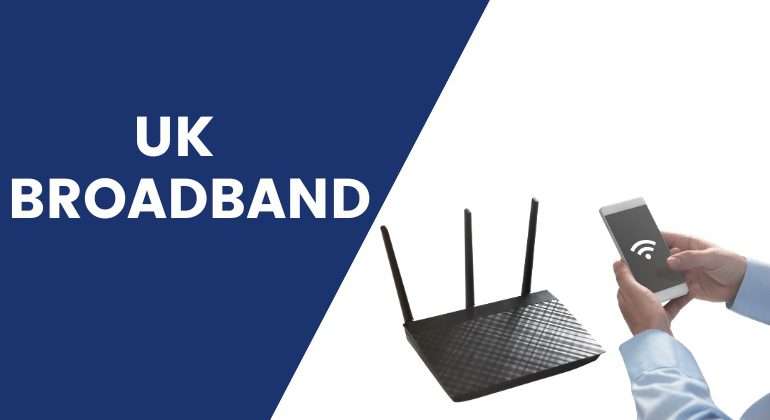According to recent research, UK home broadband speeds have surged by 17% YoY, reaching an impressive 69.4 Mbit/s in March 2023. The study also highlights a remarkable 73% increase in upload speeds and a 26% reduction in the urban-rural digital divide, offering a snapshot of the evolving landscape of digital connectivity.
Table of Contents
Download Speeds Surge
The research reveals a continuous upward trajectory in average download speeds for home broadband. In March 2023, the average download speed surged to 69.4 Mbit/s, marking a 17% year-on-year increase. This trend aligns with a growing preference for higher-bandwidth services, particularly adopting full-fibre connections.
Download speeds play a crucial role in determining the efficiency of data delivery to users’ devices, especially when dealing with substantial files like games, films, or apps, and streaming high-resolution video content.
In March 2023, 88% of connections experienced a 24-hour average download speed of at least 30 Mbit/s, a notable increase from 83% in March 2022. Conversely, only 3% of connections registered an average 24-hour actual download speed below 10 Mbit/s in 2023, down from 4% in the previous year. Importantly, less than 1% of lines had an advertised download speed under 10 Mbit/s.”
Upload Speed Surge
Concurrently, there has been a remarkable surge in average upload speeds, soaring to 18.4 Mbit/s in March 2023. This represents a substantial year-on-year increase of 7.8 Mbit/s, marking a 73% rise.
The emphasis on enhanced upload speeds is crucial for video conferencing, online collaboration, and multimedia content sharing.
Urban-Rural Divide Narrows: A 26% Improvement
Addressing concerns about the urban-rural digital divide, our findings indicate a commendable 26% reduction in the gap between average urban (70.3 Mbit/s) and rural (56.0 Mbit/s) download speeds during the 8 -10 pm peak-time period.
This improvement is particularly noteworthy, showcasing a considerable reduction from the 58% gap observed in 2022.
Cable and Full-Fibre Dominate: Fastest Download Speeds Recorded
Notably, cable and full-fibre packages have emerged as frontrunners in delivering the fastest download speeds. Cable connections experienced a noteworthy 36% surge, with the average download speed soaring to 270.6 Mbit/s.
Full-fibre connections demonstrated a steady 1% year-on-year increase, reaching an average download speed of 149.2 Mbit/s.
Network Congestion Dynamics: Mitigating the Impact on Full-Fibre Lines
Acknowledging the challenges posed by network congestion or contention, our study found that average download speeds during peak hours (8-10 pm) were 95% of the average maximum speed, reflecting an improvement from 94% in March 2022.
The impact of network congestion during busy periods was notably lower for full-fibre lines, emphasizing their resilience in delivering consistent performance.
As the UK continues its journey towards a digitally connected future, these trends shed light on the evolving landscape of home broadband performance, empowering consumers with valuable insights into the choices available for a seamless online experience.
